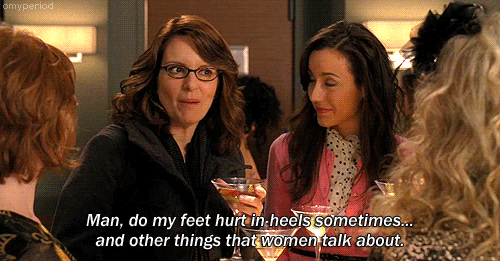I don't really use Goodreads. I like the scanning of barcodes part (who wouldn't; except probably someone who spends their working days doing that anyway) and I like the idea of having this automagically generated report of what I've read. Furthermore it can be fun and rewarding to enter my page progress. But I don't write reviews, I hate doing stars, I don't really add people as friends, and it's a lot less cool to log in and see what I've abandoned or stalled out on. (Is there a good way to "finish" a book in the sense of quitting it? I haven't played around with it much, but Goodread's interface seems kind of inflexible compared to my usual patterns of reading, which involve a lot of not-reading.)
However, in addition to being a place where people can apparently carry on utterly pointless feuds, Goodreads is a place where you can click on buttons to vote for Book(s) Of The Year. I saw some chatter on Twitter that
one book I definitely support had been nominated so I dusted off my log-in and cast my vote. Then I started looking for other books to vote for. When I didn't see any other books I've read as nominees I started thinking up write-in candidates.
And that's more or less when I realized how little I read in the year it's been published. There are a few things, notably
Pioneer Girl, that I've read and liked and which qualify. One book, I really wanted to vote for it but the site wouldn't let me. Since I live in a
pig sty studio apartment it was sitting in arm's reach, and I checked the publication date: 2014! Or no, wait, 2012; the US hardback came out in 2013 and the
paperback in 2014. So fine, you win, Goodreads.
Since academics are slow, and since
this is the centenary year, I think
The Sleepwalkers: How Europe Went to War in 1914 still qualifies as a new book, though. It certainly qualifies as a book you should read. In fact, I would go so far as to say that if you want one book to read for the centenary, this is it. That's not a very original opinion; this book has gotten a lot of praise.
July 1914
is a quicker, pacier read (and has bigger type), and is essentially narrative, whereas Clark goes broader and deeper, exploring various factors and facets of the prewar world in a more explicitly analytical way. If you are really getting
serious about the topic (reading two books qualifies), I strongly
recommend getting hold of the review essay by John Deak published in the
June 2014
Journal of Modern History titled "The Great War and
the Forgotten Realm: the Habsburg Monarchy and the First World War."
Most academic libraries, I dare say, have some sort of public provision if you want it,
and Deak's review of Austrian history and historiography is invaluable.
Anyway, back to the book. The first chapter of
The Sleepwalkers is an overview of Serbian politics in the nineteenth century, which is such an amazing, mindblowing, perfect choice I can, indeed, hardly even. Chapter two then deals with Austria-Hungary and its internal politics. Clark sets the conflict between Serbia and Austria-Hungary front and center, takes it seriously, and is never too eager to sweep it aside in favor of great-power conflicts that
must obviously be the
real truth. One of the simple but excellent insights here is the way Clark chooses to make an analogy between the Serbian nationalists of the 1910s and modern terrorist organizations. That kind of thing can be tenuous, and at any rate it's liable to become dated, but in this case it's convincing and moreover an extremely effective way to quickly get the reader into the scene. The second section, chapters three through six, treats the international political situation not simply as a matter of international relations or the interaction of policy but a messy tangle of individuals often working at cross-purposes. This is a theme that will resonate with the
July 1914 book, but Clark goes into much more detail, focusing country by country with subheadings like "Who Governed in St Petersburg?" and "Who Governed in Paris?" This section deals with a lot of different themes and theories that appear in "1914" literature, so you get wonderful little passages like "A Crisis of Masculinity?" (Side note: Christopher Clark must be superhuman, for all that he's able to cover in this book.) Finally, in the third section, we get back to the July crisis proper. This section covers familiar ground but is able to draw on all the consideration of the preceding 360 pages to really supercharge the narrative.
Guys, I'm fawning over this book, which is so uncool and gets one nowhere in one's career, but whatevs. It's amazing the level of research here and even more amazing how effortlessly it's put across. I put this in my suitcase when I went to Rome this summer, even though it takes up a significant amount of space, simply because
I couldn't put it down. It's a long book, I know, but if you like reading history I guarantee you will love this, and however far you get into it you will get a lot out of it.






























.JPG)



